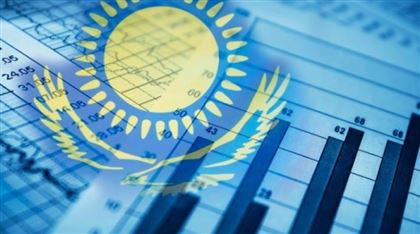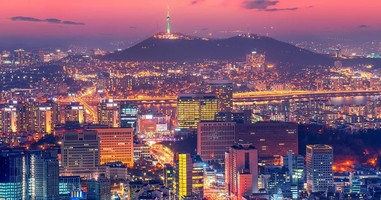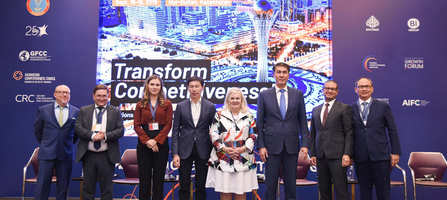
News
In order for a person to become a "human capital", a different experience needed
May 20, 2020


Караван
sources
In the past few years, the topic of Kazakhstan's new economic policy has become very popular. Documents with this title are born both in the government and in the expert community. Also after the end of the state of emergency and as the quarantine measures are eased there are more and more questions in the public space:"What's next? In what direction should the economy be developed? How to live at current prices for raw materials?".
The answers to these questions will be available during a public discussion on the country's modernization, which is launched by the Institute of World Economy and Politics under the Foundation Of the First President of Kazakhstan - Elbasy. Today, Gulbanu Pazylkhairova, Deputy Director of IWEP, Sabina Sadiyeva, IWEP expert, and Kuanysh Zhaikov, Partner of the Center for Research and Consulting (CRC), present their opinions on this issue.
- Why, at a time when everyone is concerned about the economy, do you start with the topic of human capital?
G.P.: Thank you for the question. For us, the topic of human capital and people's quality of life was not just "first on the list", but the basis of research. We followed a human-centered approach in all our recommendations. And now, as we discuss it on the discussion platforms, we are promoting this principle - "People First". It sounds even more concise in English: «People First».
Over the past 20 years, many changes have taken place in the country: governments have changed, new industries have appeared, its map and institutions have been formed. Each government administration was very active. But one of the main lessons learned is that no government, even the most active one, is able to implement the country's modernization project without the participation and support of citizens. Therefore, we believe that now is the moment when it is possible and necessary to change the policy in the economy, social sphere and public administration. After all, "Insanity is doing the same thing over and over again and expecting different results", as Albert Einstein said.
We started an open public discussion with human capital issues, because we need to honestly understand and accept the realities of the country's development: the quality of human capital is the "ceiling" of the effectiveness of any development policy. We blame the inefficiency of the state apparatus, but we ignore the fact that these 100,000 officials are citizens with the same behavior, values and norms as everyone else. And there is simply no place to take qualitatively other 100 thousand people.
When they blame banks for the lack of credit, their main argument is that there are no normal borrowers with calculated projects. When government agencies are criticized for excessive regulation of business, they are silent about whether they have enough capacity for cooperation. And the lack of competence and motivation of personnel is a talk of the town. In general, we are always talking about the broad masses of the population. This is why we have such an adventurous hypothesis: are there any barriers in the human capital itself? How competitive is it?
In the study we proceeded from the permanence of the long-term goal - Kazakhstan should become a developed country. Therefore, the analysis was conducted through the prism of developed countries, we compared the characteristics of human capital with the "Top 30" of the world's leading countries. This is how we started our research with a joint team of IWEP and CRC.
- Judging by the principle of "People First", have you guessed the hypothesis? Are there any barriers in human capital that can hinder our further development?
K.Zh.: There are barriers. They are all noticed in a close circle, but there is no desire to scale it to the country. We just received a quantitative confirmation and built a cause-and-effect relationships. First we have to agree on the definitions.
The first is human capital. These are certain qualities that lead to well-being - social and economic well-being. In other words, humans themselves are not yet the "human capital". He must first accumulate a set of qualities that extend beyond the classic "knowledge and health".
The second is social capital. This is the quality of social connections in society. Here the unit of study is not a person, but a group of people. This is important because the group creates so-called informal institutions – unspoken rules of behavior. If they conflict with official laws and regulations, they often win. "Zhurt", "Code", "Influence" and so on are part of this. They also say: "That's the way it is here."
So we studied as much as time allowed, demographics, income and employment, education and "hard" skills, values and "soft" skills. And all this through the prism of space, since the country is not small.
In short, the story is as follows.
The speed of economic and social change varies: for the second, it stretches over several decades. Thanks to oil, Kazakhstan was able to enter the global list of countries with average incomes in just 10-15 years. Foreign currency merged with the national economy on a record scale, and a redistributive channel was activated. Chains of goods and services, cities and suburbs appeared. Tectonic shifts in the working population began. The main thing happened - the employment structure began to change. Just 10 years ago, Kazakhstan was still an agricultural society with 2.3 million people employed in agriculture and 0.9 million in industry. Over 10 years, 1.1 million people left agriculture, and the number of workers in industry increased by 0.2 million. Now Kazakhstan's society is considered to be transitional between agricultural and industrial.
What does this mean in terms of human capital? For now I will omit the questions of traditional agrarian society - religiousness, high level of national pride and respect for authority. For now, we will focus on the issues of competitiveness. Agricultural society is usually poorer because of the specifics of agriculture. Localities are much smaller, and you are surrounded by similar people, mostly relatives. In such a society, the so-called values of survival as opposed to the values of expression are strong. People prefer security to freedom, are not tolerant enough, and do not trust others.
In essence, this means weak, "soft" skills. Kazakhstanis do not trust a wide range of people yet. Any interaction with unfamiliars creates extra costs. It is necessary to constantly spend money on risk reduction and look for an "arbitrator". For any entrepreneur, these are endless costs and lost profits. Costs lead to the expectation of higher returns, which means that many standard businesses are unattractive. "Arbitrators" require informal payments. And lost profits are expressed in working with loyal, rather than competent people.
For obvious reasons, civil society is not developing. Most Kazakhstanis are not even ready to sign a petition. If horizontal cooperation is low, a "vertical" is required – excessive demand for the state is created. Even for those problems that the society could solve on its own. Mass opportunistic behavior begins – the use of the state by one stratum to trample on the freedom of another. Paternalism is flourishing, the state is expected to level off income, private property is preferred to public property, private organizations are trusted less than the public ones.
Once again, Kazakhstan's people are changing, but it takes time. So far, it is difficult to imagine how mass entrepreneurship and innovation, new sectors, the creative economy, and so on can be developed on this basis and with the old political instruments.
"That sounds depressing." Still, is there a shorter way?
S.S.: Absolutely. We did not mention, perhaps, the main strong feature of Kazakhstan's society – it is relatively young. Today, the independence generation with the Soviet one became even. Half of our population are children and young people. It is clear that the main conductors of values are their parents. However, there are three important "BUTS" here.
Firstly, the generation of independence began to shape -personality in the moment of economic boom. Their parents' incomes were rising, which meant that survival values were weakening. Because of this, they are more eager to express themselves, they have a different starting point in life.
Secondly, the Internet gave them access to another life. Pictures have appeared for comparison. Social networks have brought together young people from different strata and regions. Differences between people have become accustomed to. That's why they have other "soft" skills.
And the third and most important thing is education. Low incomes lead to the fact that parents trample on part of their freedom to transfer values to children in favor of the "payer" – the state. The sphere of education is one of those in which the state truly dominates. Either directly or through regulation. So far, we have seen a lack of preparedness of the education system to upbring the future generation. For example, the initial stages of a child's life are not sufficiently covered, and they are key stages in the formation of cognitive skills. The issue of language inequality has not been resolved: there is a dangerous hypothesis that Kazakh school children pass tests worse, because more time is spent on translating questions in their head - they think in Russian.
Everyone knows about the overburden of the educational infrastructure. Now the state policy is aimed only at elimination of three-shift and emergency schools, but the truth to be told, children should study in one shift. Educational organizations are now among the most regulated, with mixed political functions. An innovative atmosphere is out of the question here. There is almost no culture of academic honesty.
The problem of low status of teachers has been solved recently, and we will see the effect in a few years at the very best. However, this status affects the quality of education much more than physical infrastructure. We talked about value education, but how can we implement it if the teacher is at the bottom of the status hierarchy?
The status of a young nation is a long-term advantage of the country in the availability of human resources. But turning them into human capital requires proper training. And now it is the most direct tool of the state influence.
- Let me summarize: we have certain barriers to the development of human capital, but at the same time, the "youthfulness" of the nation gives hope that this can be corrected. Of course, provided that the state will pursue the correct policy. And the main question is: what to do, what should this policy be?
K.Zh.: We are very cautious about whether a single policy of human capital development is possible at all.
Being inside, we underestimate the size of our country. Kazakhstan is the world's largest country without access to the sea. And with the population spread out around the perimeter. As it happens, there was no malicious intent here.
Firstly, there is not so much land suitable for living, it is the south of the West Siberian and East European plains, as well as the foothills of the Tien Shan.
Secondly, the "gravity" works. The Western part of Russia has formed a system of supply from small and medium-sized cities around it: it includes our cities along the Northern border. And the historical region of Turkestan, which includes our cities along the Southern border, existed by itself. When extensive mining of raw materials began, the current industrial belt appeared between these two arcs. In the West it is oil and gas, in the center and in the East these are coal and metal ores. Cities and villages serving workers appeared around the fields. But their future is still in question, because the territory is not very favorable for living there.
This is how the current space of the country was formed. Just open the Google physical map and you will see everything. Should we be surprised that the population is different? Let me give you a couple of examples so that you can understand the difference. Territory size: Germany is smaller than the Karaganda region. Moreover, one Ulytau district of Karaganda region is larger than South Korea. That same Singapore is smaller than the capital.
Things are more critical with income. The difference between the richest and the poorest region of Kazakhstan reaches four times. How much is that? Take the "Top 30" most developed countries in the world. The difference between the richest and the "poorest" of them is only 3.3 times. Kazakhstan is 3 times behind the most developed country – Norway! In other words, some regions are already in the "Top 30" of the world, and some simply dream of at least average incomes. It is like Maslow's pyramid. Someone else survives and needs at least some income, while another region dreams of self-realization, dreams of spiritual values. By offering something in between, you irritate both of them.
So it turned out that the country is "sewn" from at least four worlds. Each has its own human capital, its own employment structure, and a combination of socio-demographic characteristics, challenges, and opportunities. The first world - the post-industrial world are the capital and Almaty. The dominant employment in the business services, high income, quality and duration of life, a lot of businesses. The "modernizing core" – the middle class has been formed here, so civil society is more active.
The second world - agricultural and industrial, is a Northern arc along the border with Russia. Mixed employment in agriculture and industry, average or relatively low income, low life expectancy, low birth rate. A significant proportion of the Russian population. Young people migrate to Russia.
Third world - the agricultural world is the southern arc, from Turkestan to Taldykorgan. High employment in agriculture, extremely low incomes, high shadow sector, average life expectancy at a low level, high birth rate.
The fourth world - a zone of unstable cities with a specialization in mining are the West and the center of Kazakhstan. There are high employment in industry, income and birth rate, the share of the Kazakh population. Villages do not engage in agriculture but serve industry.
In view of all these differences, human capital indicators are highly differentiated by region, so policies should be different.
- So is it necessary to change people in order to change the country?
K. Zh.: It is necessary to change the environment in which people live, and they will change after it.
Last year, we held a Global Innovation Summit in the capital, where we discussed these challenges with international experts. We liked the idea that all the recommendations are unfolding around. The point is that we cannot even maintain the status quo. Now the trends are such that human capital will be "washed out" of the country due to competition. To the developed countries, and especially to Russia.
And those who remain in Kazakhstan will face a fundamental shift in demand for their skills. Literacy, physical labour and formal diplomas and degrees are less and less a guarantee of work and income. The demand for technological, socio-emotional, and higher cognitive skills is growing rapidly. The problem is exacerbated by the fact that different parts of the country have different human capital, expectations and opportunities. To launch this all, it is necessary to propose an agenda that would "beat" on the motives and behavior of each individual person.
What did the experts tell us at the summit? That Kazakhstani people are the same citizens of the world, and they are distinguished from developed countries only by one thing which is the lack of experience or "other practices". Having found themselves in a different environment, Kazakhstani people accept the rules of the game and behave differently. What is a different environment? This is a better job, a bigger city, and other methods of communication. This is the transition from low-income self-employment to productive and collective, like a manufacturing plant or factory. This is moving from a village or small town to a regional center or metropolis. These are Facebook and WhatsApp, IKomek and Egov, which allow people to cooperate and express their position.
In short, we propose to give the capital and Almaty more independence in the context of a unitary country, to conduct primary industrialization along the southern arc, to include the Northern regions into the supply chain for Russian "millionaires" and to reindustrialize our industrial belt.
S. S.: I would add that if we look for one big policy of human capital development, one recipe for all, it is education. High-quality and affordable education with our share of children and youth can transform the entire face of the nation in the long term. But this requires big changes in the education system. These are issues of financing, deregulation and changing the orientation of the educational process. Everything that we discussed with the experts is described in more detail in the published book.
K.Zh.: Also in terms of studying the human capital, I want to note some technical points. We have encountered big problems in statistical samples. They have been shifted towards the poor, and the real picture of the middle and affluent class is almost invisible.
Similar problems with sociology. There is still not enough sociological research in the country in the context of the economy and with a large sample. 1.5-2 thousand of respondents do not give an opportunity to compare regions with each other. A lot of work is done by Kazakh sociologists, but for some reason the economic block of the government is reluctant to use their work. And how wrong it is!
- What do you plan to do with the results of the study?
G. P.: Our research is scientific and practical, with some applied conclusions. Now we would like to start a broad discussion not only with the expert community, but also with all interested citizens, because this concerns us all. No one has a monopoly on the truth. We hope that our research will start a productive discussion in society and influence the adjustment of the state development policy of the country.
To do this, we have launched the platform of the Kazakhstan expert club – this is the place of our meetings and discussions. A series of webinars and seminars are planned based on it, including on our other researches – public administration, social policy, spatial development, growth points and macroeconomics. Participation is as open as possible.
The research page also has all the contacts - you can send questions and comments directly to the research teams for individual books. Separately, I would like to invite our fellow citizens abroad to the discussion. Today, they are carriers of unique knowledge and experience in a different environment, and their view would be useful.
share
article
references
https://www.caravan.kz/news/chtoby-chelovek-stal-chelovecheskim-kapitalom-emu-nuzhen-drugojj-opyt-638175/?fbclid=IwAR3HIe2S2ihkymkLG87MTwbJ5Vo6fhP67Hp-4mUTvYHtSvXkINz4KDtBTQ4all publications











